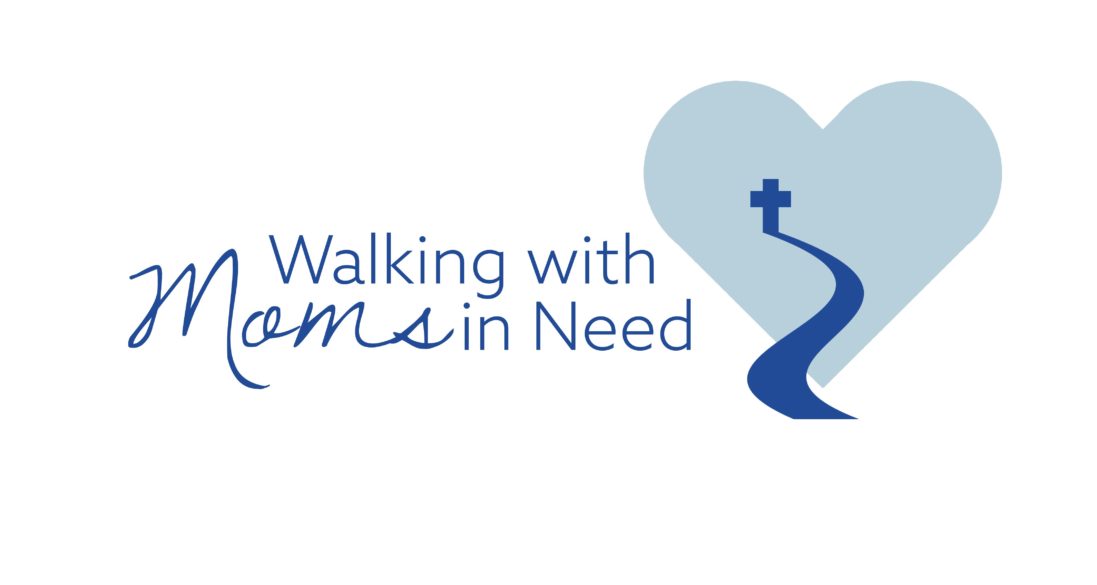By Dennis Sadowski
WASHINGTON (CNS) – Dioceses and parish volunteers who have embraced the “Walking with Moms in Need” initiative are still in the early stages of assessing its effectiveness.
Statistics – counting the numbers who have been helped – are an inconclusive means of measuring how well the initiative is working. But anecdotes so far give an encouraging picture.
This initiative of the U.S. bishops aims to connect pregnant women and their families with parishes and to a growing network of resources with the help of volunteers.
The rollout of the program was slowed because it was launched March 25, 2020, just as the pandemic began to take hold, but it is underway.

“It’s not an abortion alternative,” Cindy Ketcherside, a coordinator at St. Theresa Parish in Phoenix, observed in an interview with Catholic News Service. She calls the women “abortion vulnerable,” but “what we’ve found are more working moms who already have children.”
Seldom do the women have to be dissuaded from an abortion. By the time “Walking with Moms in Need” is involved, that decision usually has already been made not to have an abortion.
Promoting the initiative is typically as simple as posters on parish bulletin boards and brochures. But those in need, going by anecdotal evidence, come to the program from all directions, and even through private conversations following Mass.
The common thread in the parish-level stories: There’s no such thing as a stereotype of the women who are helped.
Kathleen Wilson, coordinator of Respect Life for the Archdiocese of Detroit, likes to tell the story of the single mother with triplets. Forced to move back in with her mother because of the financial strain, she turned to the initiative for clothing, medical and nutrition needs.
“It shows you that we’re accompanying them even in very challenging circumstances.”
Another was a 17-year-old girl. Wilson praised the parish’s “lack of (harsh) judgment” so it was able to “embrace these young parents. There’s been this continuation of supporting this young life as a parish family.” The key question to ask, she said, is “How do we meet that person where they are?”
Parishes are encouraged to find the skills within their ranks, and Wilson knows of one that including a lactation specialist who was happy to add her expertise.
Megan Morris, director of the Life Center of Santa Ana, California, calls that loving the mother “where she’s at.”
“Our hope is not only saving the unborn baby, but bringing the mother and baby home to Christ and a community of support,” she said.
There are training sessions for volunteers. Each mother is assigned a companion to accompany them on the stressful trek of applying to state agencies who provide nutrition and housing assistance.
Among the worries, “formula is a big one,” Ketcherside said. Other help includes finding access to parenting classes and vouchers for Section 8 subsidized housing.
Sometimes the contact starts with a phone call, said Denise Malone, the Respect Life coordinator at St. Rose Philippine Duchesne Parish in Anthem, Arizona.
“I heard from a grandmother. Her very young daughter had had a baby out of wedlock. So the mom and the baby were living with the grandparents,” Malone told CNS.
And the request was a little different from food, shelter and clothing. “They wanted the mother to financially support the child. They asked for help in finding at-home day care. Money wasn’t an issue. And they wanted the mom to enroll in classes. So that was successful.”
The key to training volunteers: “Active listening is a really, really big thing, and being able to understand the mom and where they’re coming from. You can’t make assumptions.”
Another common element, Malone has found, is “fear. They’re all in a position where they’re fearful they can’t raise the child that they’re pregnant with. It is going to be a heck of a lot better to know that the mother will have their baby and we will protect them.”
“They’re overwhelmed,” Ketcherside agreed. “They don’t know where to go.”
In July, pro-life leaders in Baltimore for the U.S. Conference of Catholic Bishops’ Diocesan Pro-Life Leadership Conference noted that supporting women in choosing life is a top priority for them especially in the wake of the Supreme Court’s Dobbs v. Jackson Women’s Health Organization decision June 24.
The ruling overturned Roe v. Wade, the 1973 ruling that legalized abortion nationwide, and returned the abortion issue to the states.
Since Dobbs, interest in “Walking with Moms in Need” seems to have increased somewhat. For example, in the 10 days following the ruling, the Archdiocese of Detroit’s “Walking with Moms in Need” webpage received nearly 1,600 unique page views.
In 2021, Archbishop Joseph F. Naumann of Kansas City, Kansas, chairman of the bishops’ Committee on Pro-Life Activities, said the initiative “directly confronts the false, yet popular, narrative that the Catholic Church merely condemns abortion, without providing the resources or support women need in raising their children.”
(Editors: More about “Walking with Moms in Need” can be found online at walkingwithmoms.com.)
